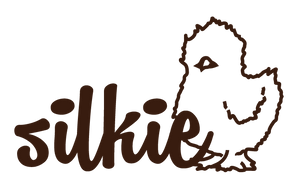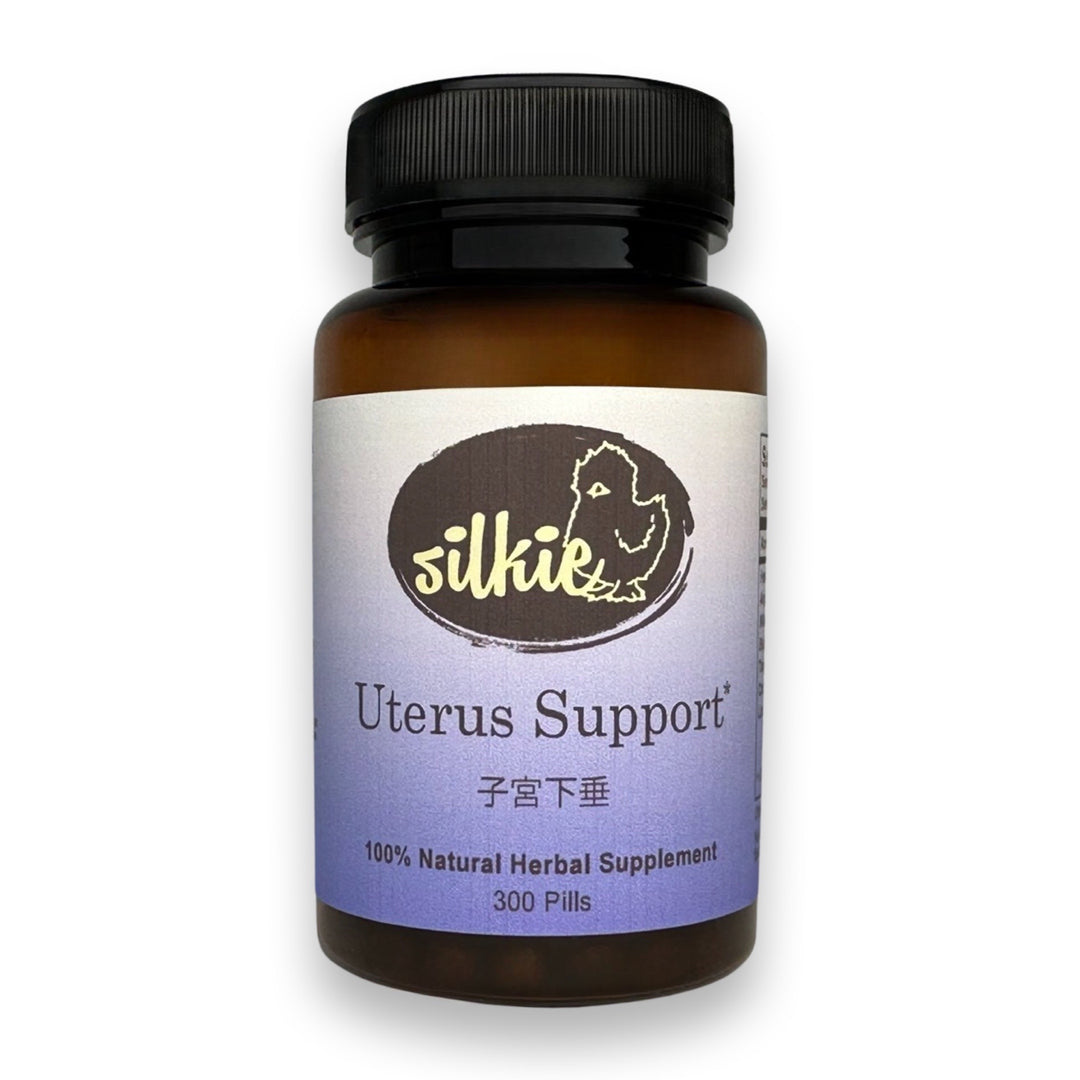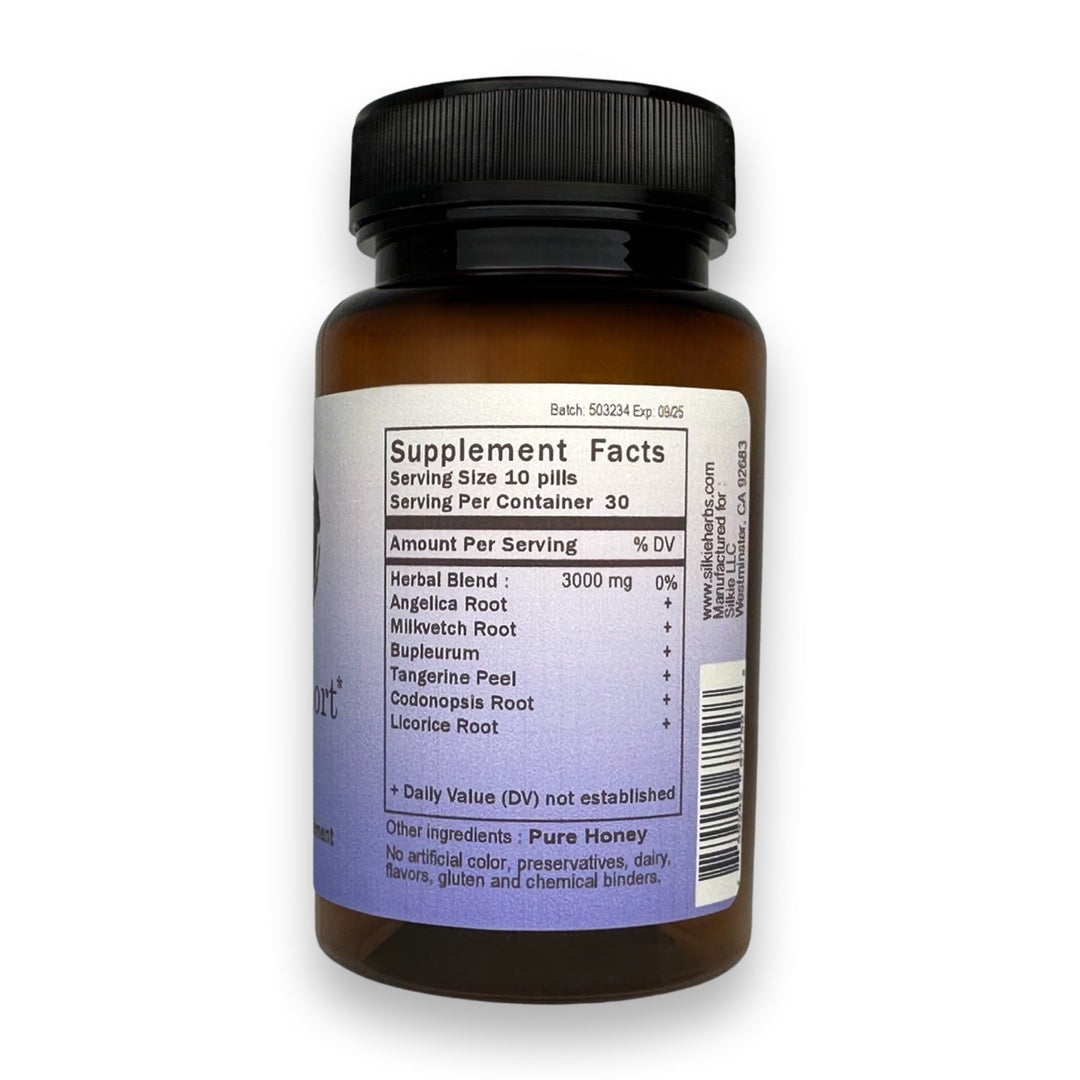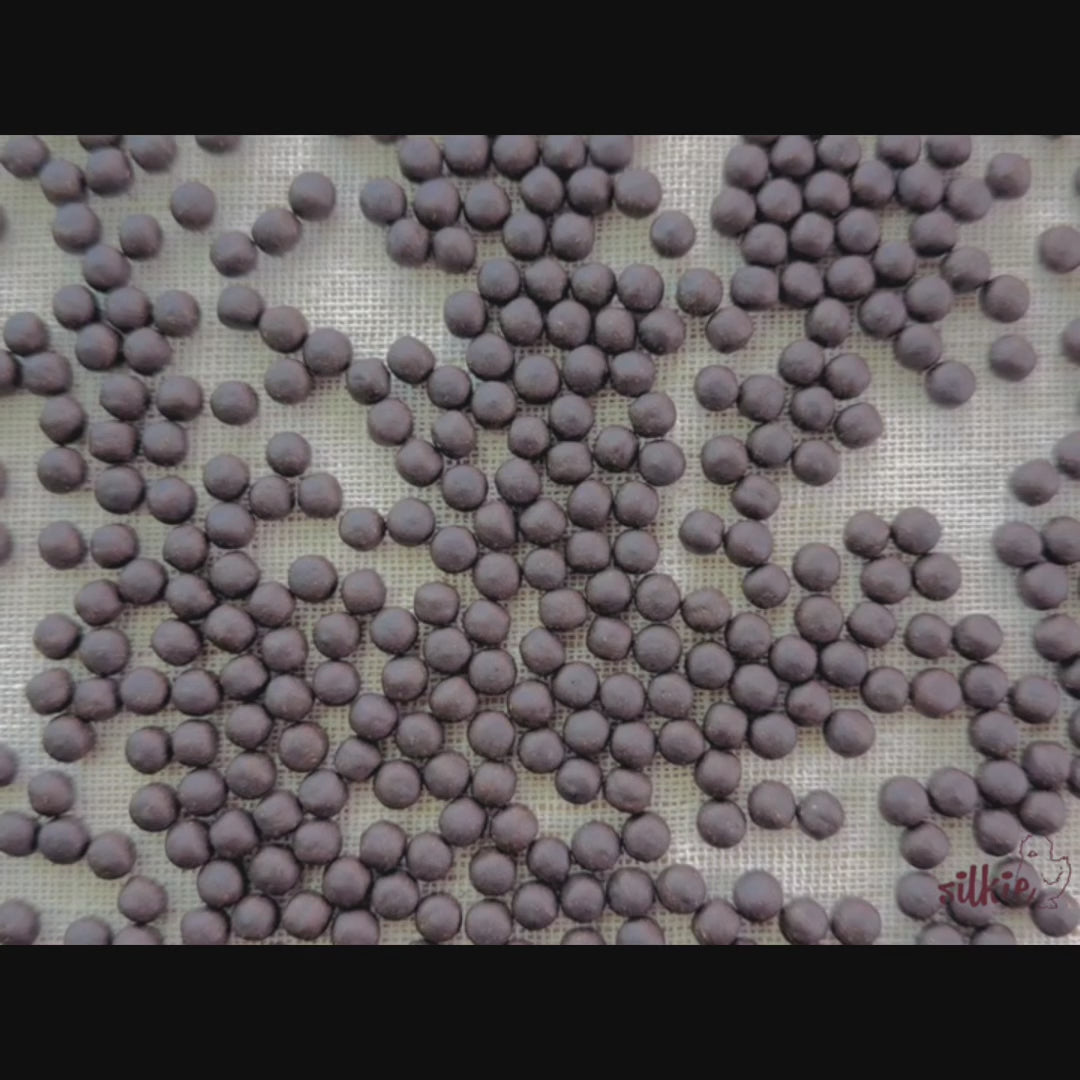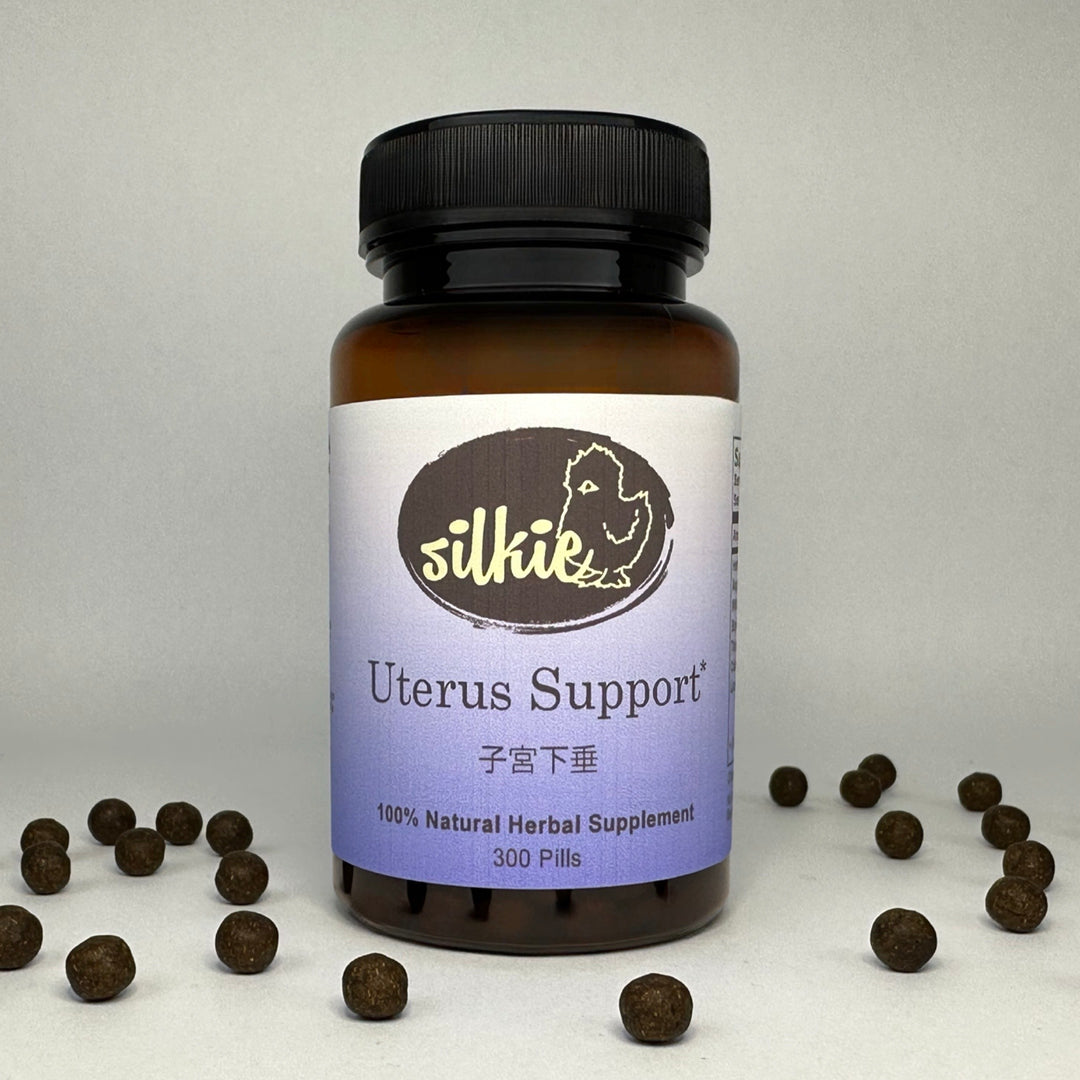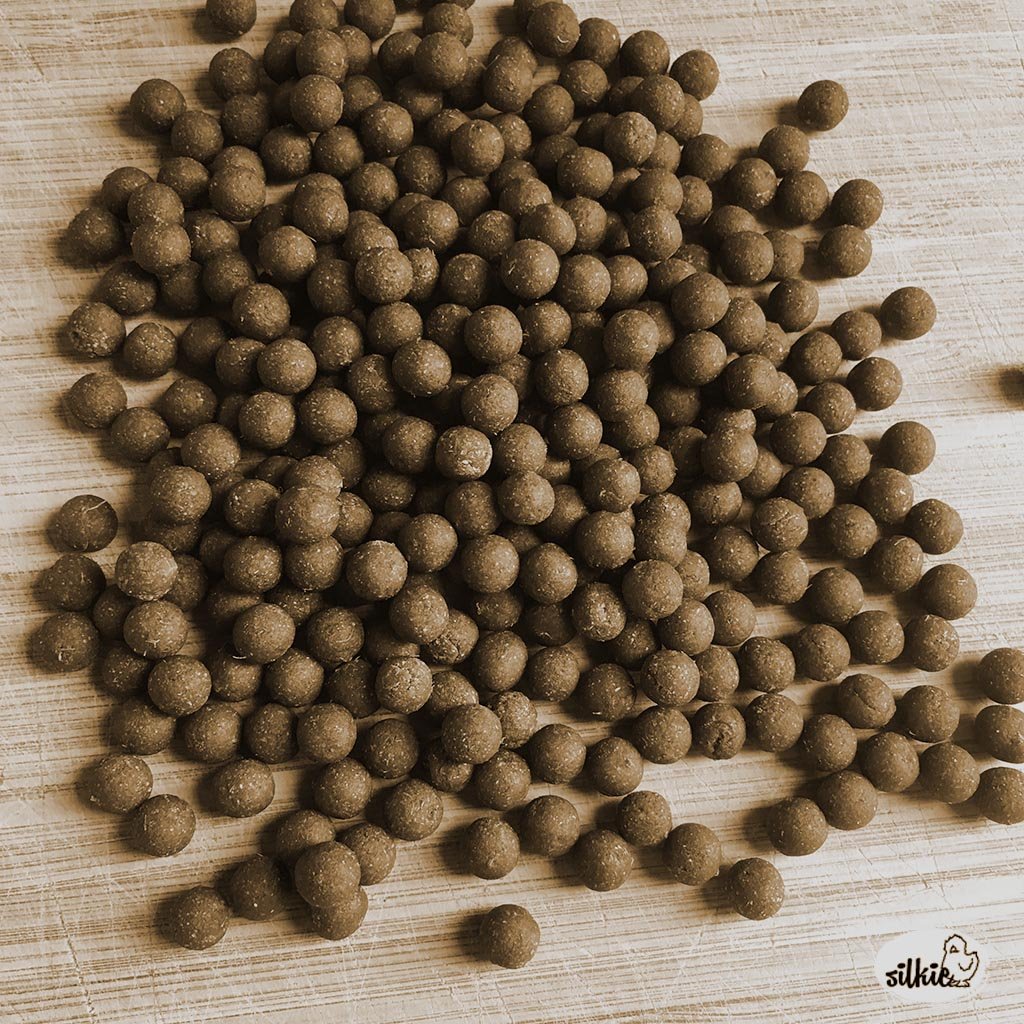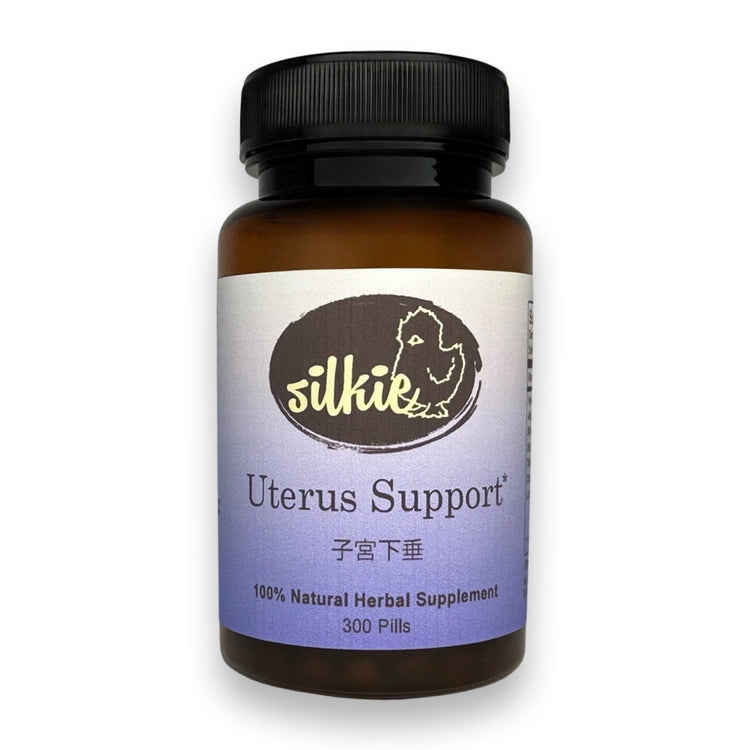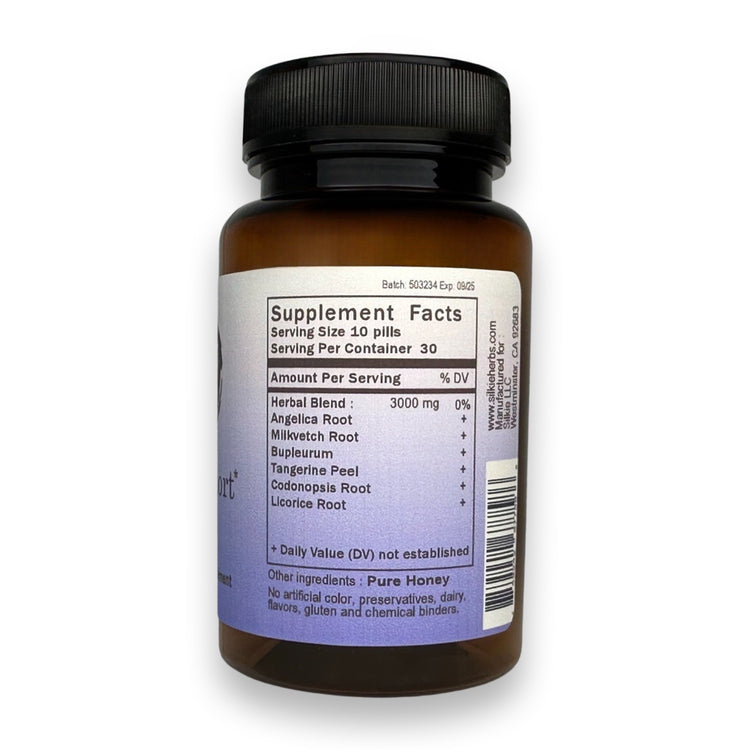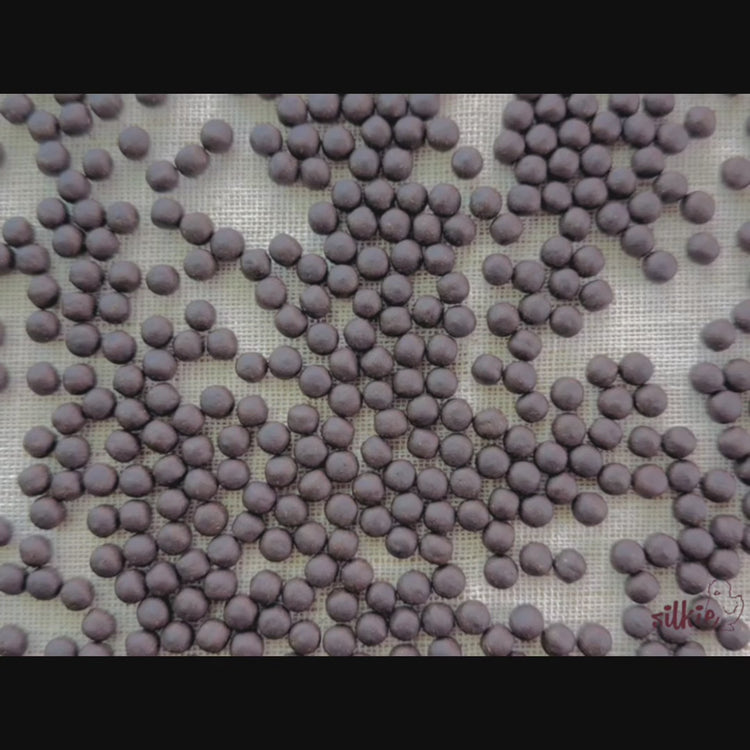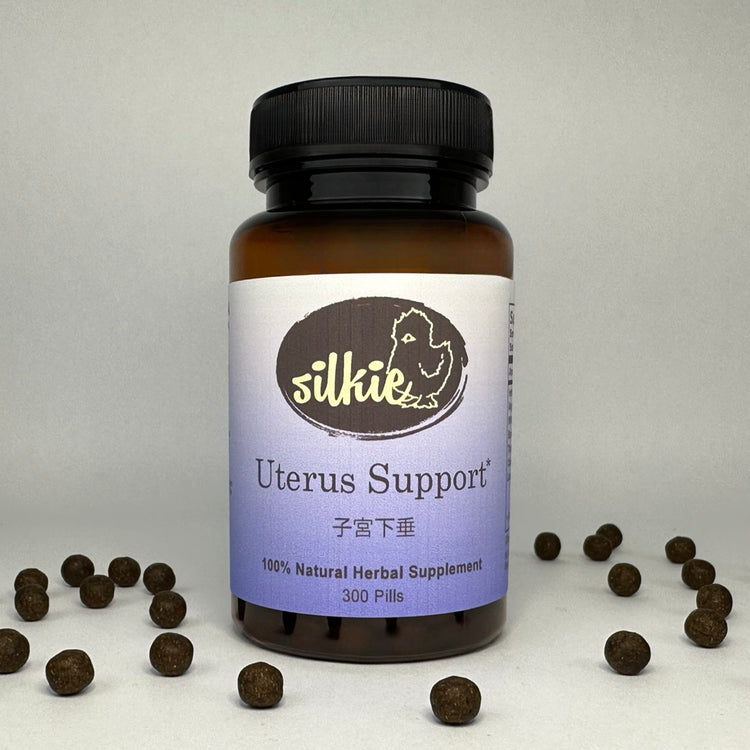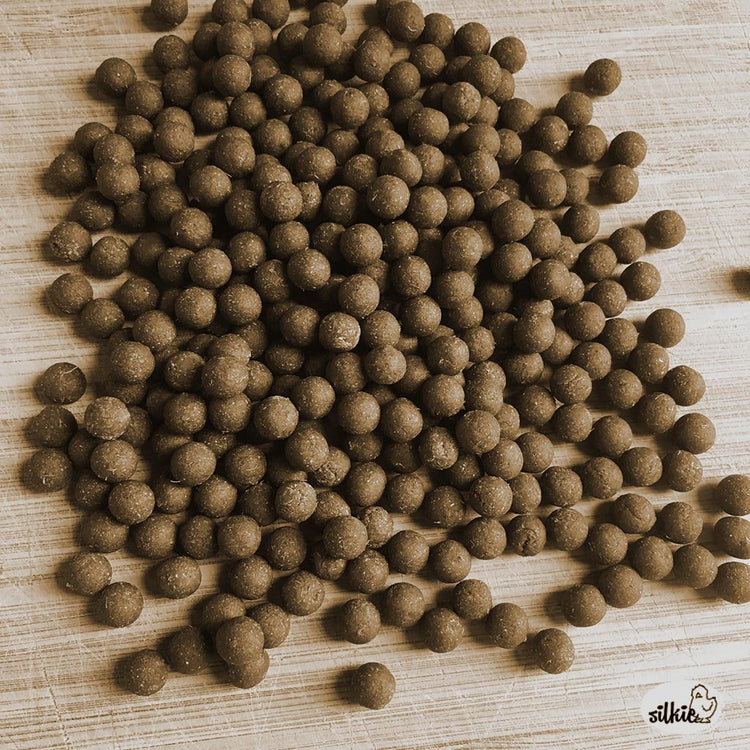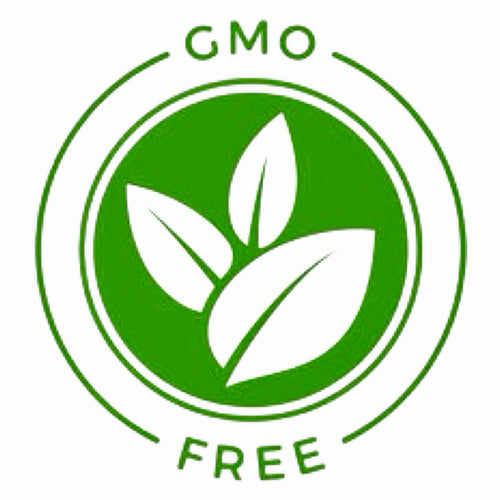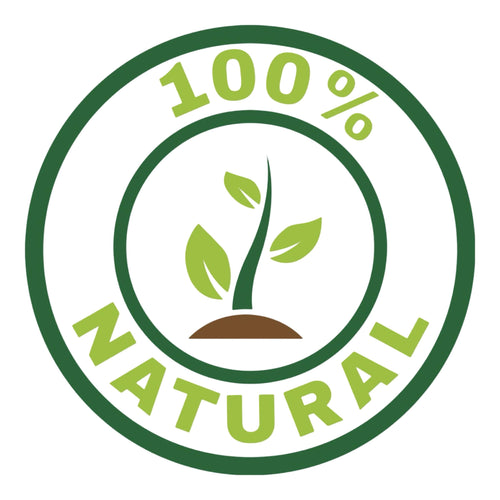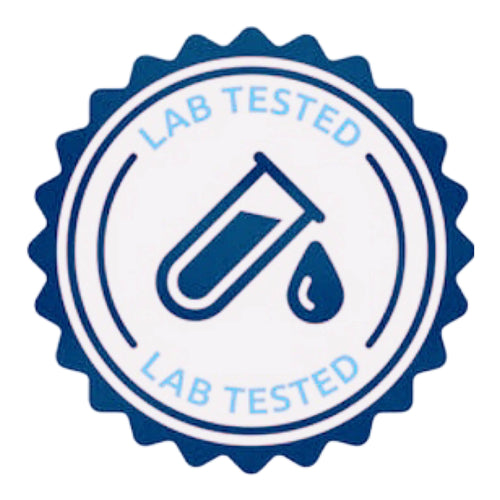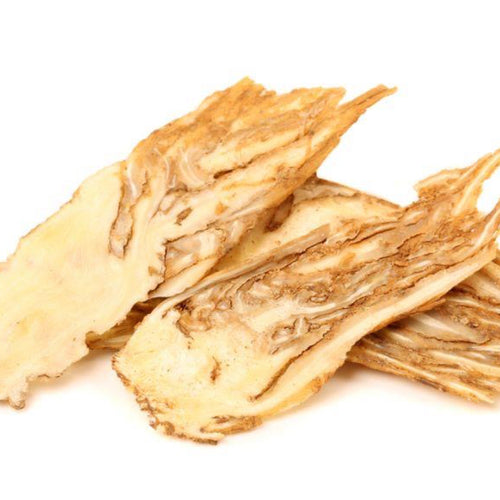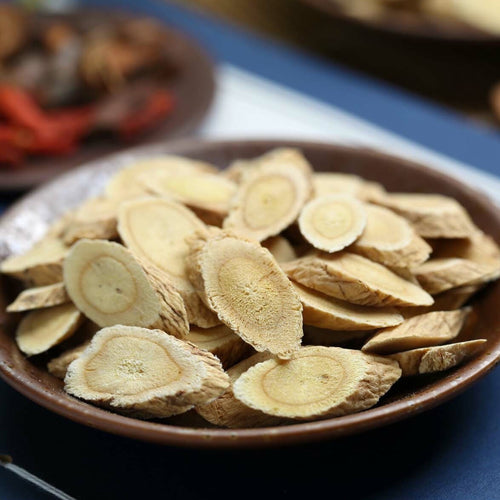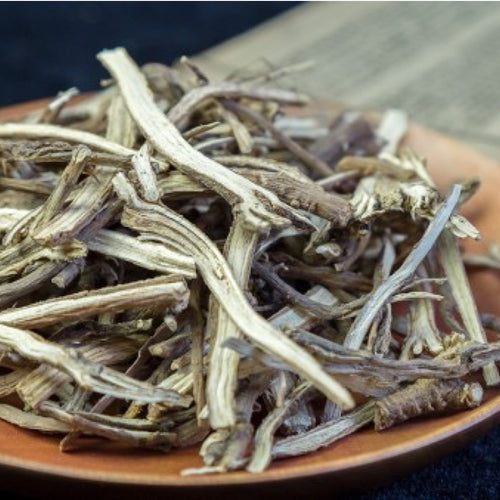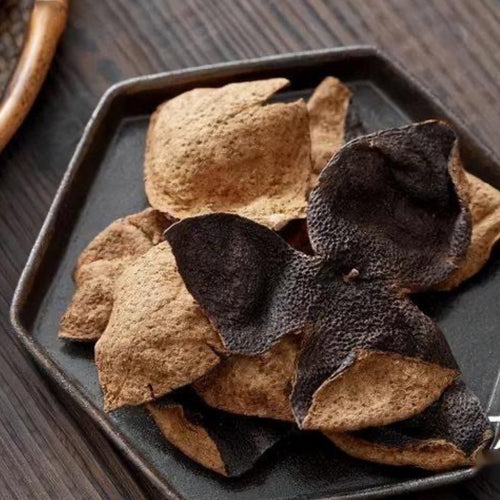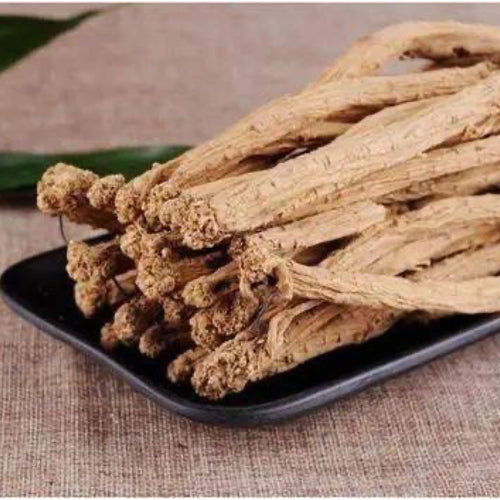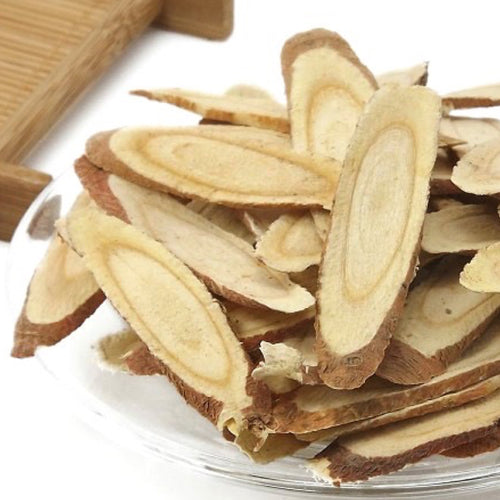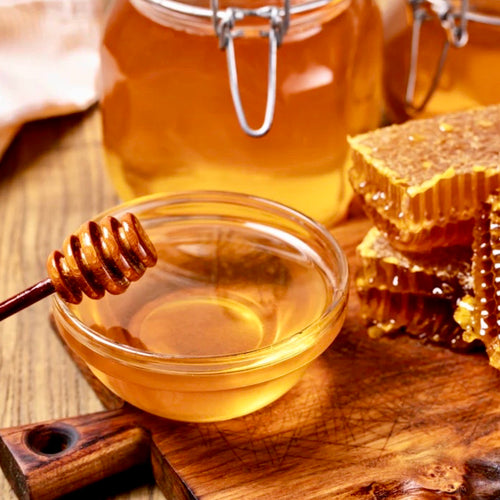An empirical herbal blend is aimed at individuals experiencing symptoms associated with a prolapsed uterus, which may include a sensation of fullness or pressure in the pelvis, the feeling that something is descending through the vagina, and painful sexual intercourse. Additional symptoms can involve difficulties with urination or bowel movements, discomfort while walking, and involuntary loss of urine during coughing or sneezing. This condition often results from weakened pelvic support structures, and treatment focuses on increasing Lung and Spleen Qi, as well as regulating the Spleen and Stomach to restore balance and improve overall pelvic health.*
Non-GMO | Gluten-Free | No sugar, corn, or dairy | No artificial colors, flavors, preservatives, chemical binders, or wax
100% Pure natural herbs, blended, made, and packaged in the USA
*These statements have not been evaluated by the Food and Drug Administration. This product is not intended to diagnose, treat, cure, or prevent any disease.
A Proven, Researched-Backed Uterus Formula
Studies published in journals such as the Encyclopedia have highlighted the enhancement of immune functions as observed of Milkvetch Root (Huang Qi), showing its significant effects in decreasing fatigue, enhancing aerobic performance, and mitigating post-exercise immune suppression. Similarly, research in Front Pharmacol has demonstrated that Codonopsis Root (Dang Shen) has neuroprotective effects, protection of gastrointestinal mucosa and anti-ulcer, regulation of body immunity, anti-tumor, endocrine regulation, improvement of hematopoietic function, cardiovascular protection, anti-aging and antioxidant effects, show many remarkable effects, making it particularly beneficial for those suffering from Uterus-related symptoms.
- Increases Lung Qi to pull the uterus up and prevent prolapse.*
- Reduces involuntary peeing with a cough or sneeze.*
- Reduces sensation of pressure or fullness in the lower abdomen.*
*These statements have not been evaluated by the Food and Drug Administration. This product is not intended to diagnose, treat, cure, or prevent any disease.
For adults, as a dietary supplement, take 5 - 10 pills with warm water only once or twice daily if needed. If taking other medication or supplements, allow at least 2 hours before or after using this product.
Different individuals may experience different symptoms, including:
- Feeling of pressure or fullness in the pelvic region
- Involuntary peeing with a cough or sneeze
- Feeling of something protruding out of the vagina
- Discomfort when walking
Often this formula doesn’t work fast or you may notice the results right away, when a woman has uterus prolapsed, it can be related to deficiency of Qi, deficiency of Spleen and Kidney Qi, not sleeping in the right time and had deep sleep in the lung hours or lack of sleep, and have digestive system issues etc. Suggested to find out the reasons/causes and address that as well, once those areas are addressed, it will stop the prolapse from getting worse. By taking this formula, it will support the system to strengthen the lungs and digestion and be able to stuck the uterus back in place.
Eat similarly portioned meals 3 times per day at regularly designated times. No raw, uncooked veggies and fruits. It is best to avoid eating sweets; greasy or deep fried foods; dairy; pungent or heavily seasoned foods; pickled foods; and burnt meats. No smoking, alcohol, coffee, and cold beverages. No iced beverages including smoothies.
Avoid going to bed soon after eating. Allow at least 2 ½ hours between eating the last bite and going to bed. Be in bed by 10:30 pm and sleep from 11 pm to 7 am.
For optimal health, rest more and stay away from wind/drafts, cold or AC. Avoid activities that require long periods of standing, walking, running, or jumping.
|
Serving Size 10 pills Serving Per Container 30 Amount Per Serving 3000mg |
|
Herbal Blend: Angelica Root Milkvetch Root Bupleurum Tangerine Peel Codonopsis Root Licorice Root |
| Other ingredients: Pure honey to aid digestion and absorption |
Keep out of reach of children. Use only as directed. If any signs of discomfort or irritation occur, discontinue use and consult your physician.
Please note that a TCM formula is prescribed based on a diagnosed pattern and multiple formulas are usually prescribed to treat the whole person. Please consult a professional TCM practitioner, they will be best able to guide you.
Combining herbal formulas can effectively address multiple health concerns or enhance Uterus related conditions:
- Uterus Prolapse Due to Qi and Blood Deficiency: Combine Blood & Stamina Plus 5 to 10 pills with Uterus Support 1 to 3 pills to nourish Qi and blood to support abdominal organs from sagging and creating imbalances.
- Uterus Prolapse Due to Spleen Qi Sinking: Take Uterus Support 5 - 10 pills once or twice daily if needed to invigorating Qi and lifting depression.
- Uterus Prolapse Due to Liver and Gallbladder Imbalance: Combine Detox Liver 5 - 10 pills with Uterus Support 1 to 3 pills once or twice daily if needed to clear dampness and heat while assisting with lifting.
- Uterus Prolapse Due to Due to Kidney Yang Deficiency: Combine Kidney Yin 5 to 10 pills, Kidney Yang 3 to 5 pills, with Uterus Support 3 to 5 pills to nourish Kidney Yin, warming Kidney Yang, and replenishing Qi.
Learn more about Herbal Formula Combinations
Why Are Silkie Formulas Superior to Other Herbal Remedies?
Silkie Pills are not your average herbal supplements. Every step in our process is rooted in quality, tradition, and uncompromising integrity - from raw materials to the final product. Here's what sets us apart:
-
100% Made in the USA
Every part of our production - from sourcing to manufacturing and testing - is done in the United States under strict quality control. This ensures consistency, safety, and compliance with the highest manufacturing standards. -
We Don’t Use Capsules or Tablets - for Good Reason
Unlike most modern supplements, we do not use capsules (whether gelatin or plant-based) or compressed tablets. Capsules and tablets often contain synthetic fillers, binders, lubricants, and flow agents that may interfere with digestion, slow down absorption, or irritate the gut. Even plant-based capsules - often marketed as "natural" - are typically made from hydroxypropyl methylcellulose (HPMC), a chemically processed wood pulp derivative. To form that capsule shell, the material must be chemically altered, heated, and molded, often with the help of plasticizers or solvents to create a uniform, shelf-stable capsule shape. These are not whole food substances, and they do not contribute to your health. Tablets, in particular, are produced using high pressure and heat, which can degrade delicate herbal compounds. The body must work to break down these materials before it can even access the herbs. -
Pure Honey as a Binding Agent
We don’t use synthetic binders or fillers. Instead, we use pure honey tailored to each specific formula. This isn’t just a natural binding agent - it’s also a natural preservative and digestive aid. Different types of honey are chosen intentionally for their energetic properties to balance the herbal ingredients. This helps support better absorption and harmonizes the entire formula with traditional medicinal theory. -
Authentic Medicinal-Grade Herbs Only
We use the highest grade of herbs - authentic medicinal materials (道地藥材 / Dào Dì Yào Cái). These are not commodity herbs; they are grown in their native regions and in the correct terroir (climate, soil, altitude), often harvested by hand at peak potency, and processed according to time-honored TCM methods.
These traditional processing techniques - known as Pao Zhi (炮製) - are essential for transforming raw herbs into effective, safe, and targeted medicine. Depending on the herb’s role and function, this may include:
Roasting (炒) – to moderate harsh properties or enhance warming effects
Steaming (蒸) – to enrich yin or reduce and eleminate toxicity.
Dry-frying with honey (蜜炙) – to tonify and harmonize with the lung and spleen
Frying with wine (酒炙) – to invigorate blood and improve circulation
Calcining (煅) – especially for minerals and shells, making them easier to digest
Fermenting (發酵) – to transform substances and enhance digestive impact
Aging or curing (陳放) – to mellow overly strong herbs and refine their effect
These methods are not optional - they’re integral to how the herb works in the body. They take more time, labor, and expertise, but result in herbs that are far more potent, targeted, and energetically aligned than mass-market herbs grown for bulk supply and sold raw. This level of authenticity is rare - and significantly more expensive - than standard commercial herbs. -
TCM Formulas Are Carefully Studied - Not Random Herbs Thrown Together
Each Silkie formula is based on classical Traditional Chinese Medicine principles. Formulas in TCM are not random combinations of herbs; they are the result of centuries of clinical observation, pattern differentiation, and energetic understanding. Each herb has a defined role - whether it's the chief, deputy, assistant, or envoy - and is selected to support a specific therapeutic direction. We follow this structured approach to ensure synergy, safety, and efficacy. You’re not getting a mix of trendy ingredients. -
Rigorous Testing from Raw to Finished Product
Every single batch undergoes comprehensive testing at every stage - from single raw herb verification, to grinding mixed quality, to the final pill. This includes identity, potency, purity, heavy metals, pesticides, and microbial contaminants. -
Traditional Wisdom, Modern Integrity
Our formulas are built on five generations of Traditional Chinese Medicine herbal wisdom, passed down through experience, apprenticeship, and clinical practice. We respect classical combinations and energetics - not just in theory, but in lived knowledge refined over time. This depth of understanding ensures every formula is rooted in true medicinal purpose, not market trends. Yet we bring this ancient knowledge into the modern era by applying clean, transparent practices and third-party verification - ensuring the medicine of the past meets the expectations of today. -
Handcrafted Attention to Detail
Unlike mass-market pills, each Silkie formula is crafted with thoughtful attention to how ingredients interact. The honey not only binds - it warms the formula, supports the spleen and digestion, and ensures smooth assimilation of herbs. This careful crafting process takes more time, effort, and skill than typical supplement manufacturing.
Ingredients
Ingredients
 honey is the only binding agent
honey is the only binding agent
 no artificial fillers or ingredients
no artificial fillers or ingredients
 herbs harvested at the height of potency
herbs harvested at the height of potency
100% Natural
Our herbal supplements are made with natural honey as the binder. Honey can support the lungs, intestine, spleen, and stomach; It works as a natural preservative with antibacterial and healing properties. Unlike other herbal supplement companies that use starch, magnesium, and other chemical substances as binders for their supplements, we only use 100% honey. We also avoid using vegetable capsules because they require chemical components to form the capsule shape.
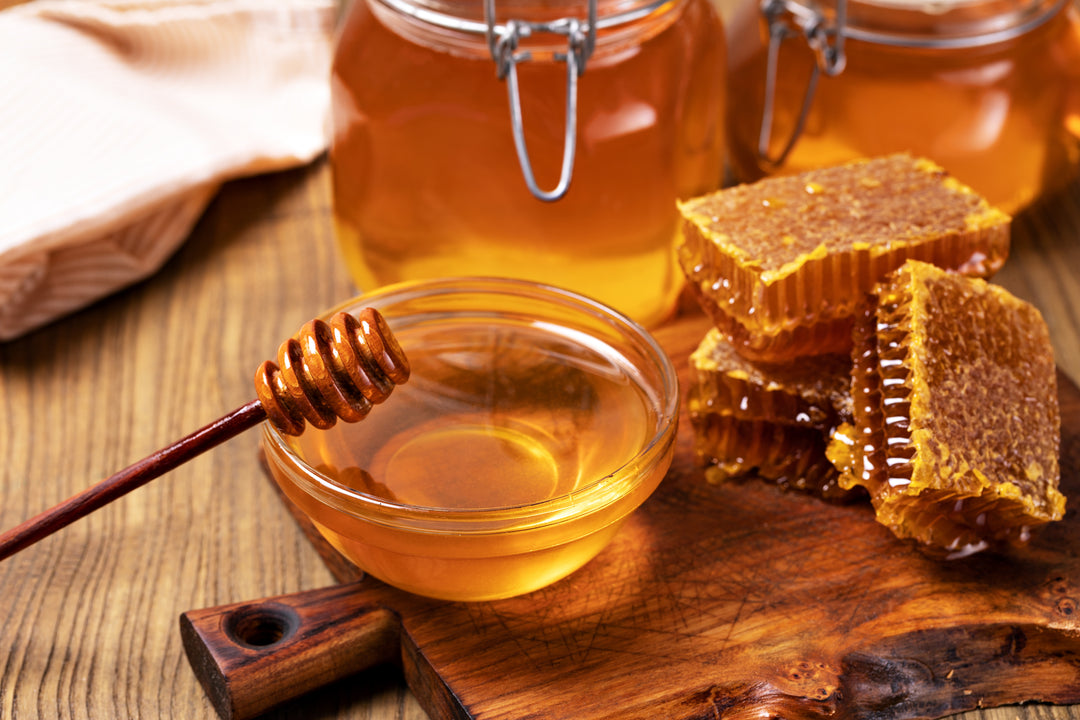
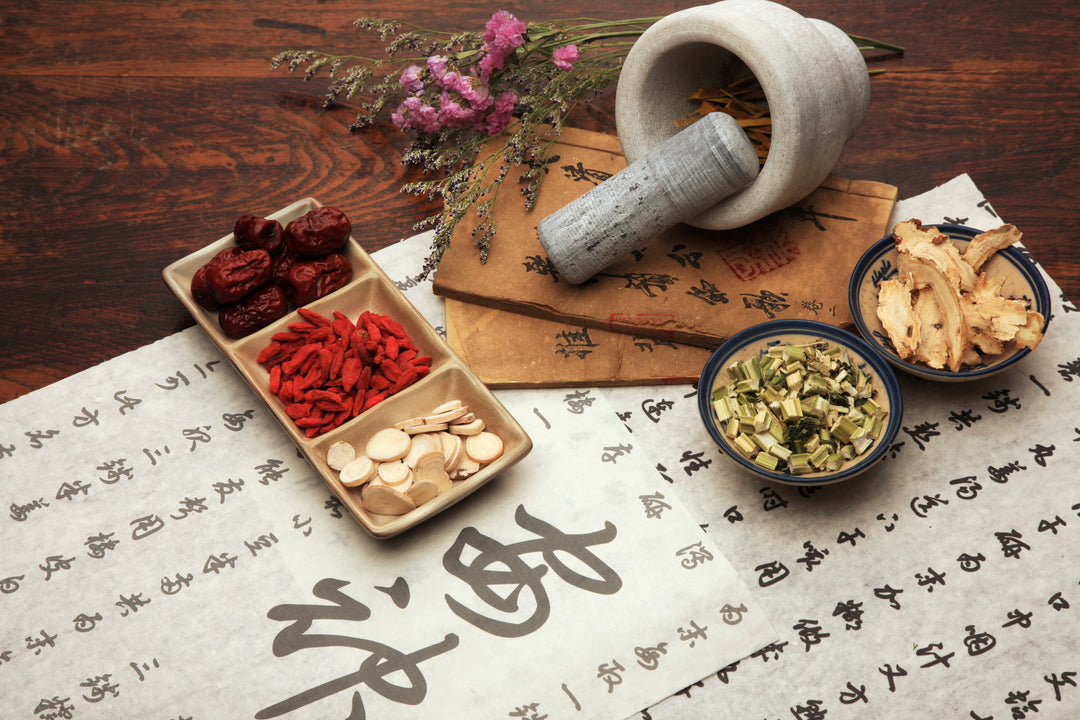
Peak Harvest Herbs
The herbs in our herbal pill blends are harvested at the height of their potency and they are substantially more expensive than less potent herbs that were harvested in the pre-or post-season, but in our view, there is no substitute for premium quality.
5 Generations
Over five generations we have collected, tested and refined Chinese herbal formulas that themselves draw from 3000 years of experience of Traditional Chinese Medicine. Traditional Chinese Medicine is a profound pathway to create the life you were born to live. It's a timeless bridge that can initiate and support change and growth in any and every life dimension: physical, mental, emotional, and spiritual.
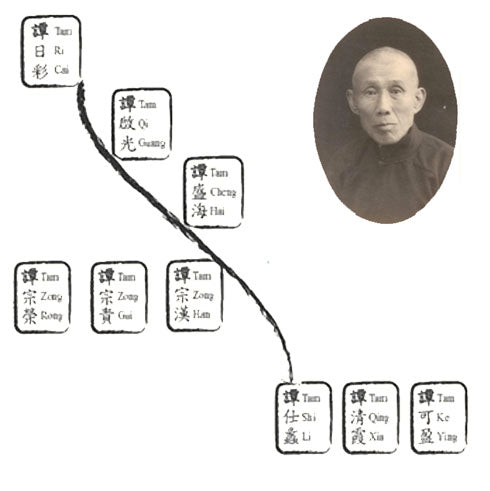
Message From Ann
"Good Health is crucial for our overall well-being. It encompasses physical, mental, and emotional aspects, and it's important to prioritize taking care of ourselves to lead a fulfilling life. Without health, life can become incredibly challenging. It affects our ability to pursue our goals, enjoy our relationships, and experience daily life to the fullest. Good health forms the foundation for everything else we want to achieve and experience." - Ann Tam
Click below for
Ann's Story
Here's my story.
If you feel skeptical or unsure of Chinese herbal remedies, I could hardly blame you. I wasn't a believer either until my daughter grew very sick and my father (the 4th generation herbalist) helped her get better with herbs.
I was born into a family of herbalists. My father, my grandfather, my great-grandfather, great-great grandfather were all herbalists. I represent the 5th generation in this long lineage dating back to Imperial China.
When I was three or four years old, I started to learn herbal songs and how to identify herbs. As I got older, I was taught how to process the herbs while working in my dad’s clinic in Vietnam. After we immigrated to the United States, my dad asked me if I wanted to pursue a career in TCM as an herbalist or acupuncturist. I said, “No, just leave me alone, Dad. I will find something I enjoy doing for work.” So, he left me alone to find my own way.
I wanted nothing to do with herbal medicine until I gave birth to my second daughter, Catherine, who was born with severe gastric reflux. When Catherine was 10 days old, I had to take her to the ER for IV injections into her little hand because she couldn’t keep milk down. Besides vomiting, she also was having diarrhea. Catherine was losing nutrition from both ends, so her tiny body was shrinking. At that time my dad warned me, “She needs to be treated with herbal medicine, otherwise she will have seizures later on.” I didn’t fully understand what my dad was talking about, so I ignored him.
My daughter got so ill that she could only take half an ounce of milk per hour. Before feeding her, I would use a syringe and shoot Zantac into her mouth to lessen the vomiting. As time passed, she needed milk more often, and consequently more Zantac. By the time Catherine was 8 months old, she needed to be fed and medicated 11 times a day.
I could hardly sleep, eat, shower or rest. Even at night, I had to drape my daughter over my shoulder for her to sleep. If I put Catherine down, she would vomit. I barely had time to squeeze in a 5-minute shower once or twice a week for myself. I was exhausted, but what could I do? I had to care for my daughter and do my best to survive each day with the hope that she would get better or at the very least her condition would not worsen.
Catherine had to wear a turtleneck with two sweaters along with a baby cap and scarf to be outside during the heat of summer, even when temperatures were 100 plus degrees. If I didn’t cover her up, she would have a runny nose, cough, and non stop vomiting. How will she be able to go to school or anywhere with air conditioning?
One day we went to a Vietnamese pho restaurant. After I set Catherine down into the high-chair, I turned around and adjusted my chair. Then I heard a woman’s shout, “Look at her!” I looked in the direction she pointed. It was Catherine…her eyes rolled up and her entire body stiff and shaking with fluid coming out of her mouth. Someone said, “Squeeze some lemon into her mouth.” I did it without hesitating and Catherine’s body relaxed.
We rushed her to the ER. For 3 days she was in the NICU where they monitored her brain. The doctors told me I was lucky because my daughter’s seizure didn’t last for more than 3 minutes which would have damaged her brain. After that I always carried a piece of lemon because I had no idea when my baby girl might have another seizure.
The seizures started to come weekly, so the doctor prescribed anti-seizure medication. Catherine wasn’t even 1 year of age, and already she was taking Zantac 11 times plus anti-seizure medicine 3 times a day. It was nearly impossible to administer the anti-seizure medicine because whenever I took out the syringe, she would cry and start vomiting.
I took Catherine to see a specialist at CHOC. I asked, “Doctor, have you ever seen any infant with this condition get well?” The doctor replied, “It depends. Some will grow out of it, but some don’t. If they don’t, then they will have to take medication for the rest of their life.”
“What do you mean by grow out of it?” The doctor explained that Catherine might get better by herself as she got older.
My mind was racing. “All this time the prescribed medication has not been treating her stomach?” The doctor said, “No, it only helps to guide the food down, so she won’t vomit it back up. That’s why you have to give it to her before the feeding.”
“Well, what if she doesn’t grow out of it?” In that case, Catherine will be dependent upon medication for the rest of her life. The doctor further informed me that she too was born with gastro reflux and is still taking medicine for the condition.
Her statement was like lightning in my brain. If the doctor can’t even treat herself for gastro reflux, how can she help my daughter? Seeing the futility of my path, I turned to my dad for help.
My dad advised me to stop all western drugs and to give her an herbal prescription 3 times a day. Administering medicine 3 times instead of 14 times a day to Catherine was a godsend to me. Even though it sounded too good to be true, I figured that I could still give Zantac to Catherine if she didn’t get better or continued to vomit.
After one month of herbs 3 times a day, Catherine vomited less and less. To test Catherine, I let her cry to see if she would vomit. She didn’t, so I knew she was getting better. After another month of herbal medicine, Catherine was able to wear less clothing without getting a runny nose, coughing, or vomiting. After 3 months of herbal formulas, she stopped having episodes of gastro reflux and seizure. Catherine will enjoy a normal, healthy life.
Because of Catherine’s dramatic recovery, I was sold on Chinese medicine and asked my dad to treat me. I fainted very easily, especially during the winter. After a few months of herbal formulas, I have never fainted again.
I started to have time to think and tried to understand why a piece of lemon helps to relax the muscles and stop a seizure. Lemon is a common citrus, yet it has magical powers that we don’t understand and underestimate. I wanted to learn more and find answers, so I decided to go to China which has a long history of herbal medicine. I went to TCM schools in China and Hong Kong and worked in the TCM hospitals to learn from the best herbal doctors in the world.
When I was there, I knew one day I would want to become an herbalist, but how can I get a steady supply of high-quality herbs. My dad and I backpacked across China and visited many farmlands. We interviewed farmers to grow herbs for us. Our products are used with the highest quality herbs that have been harvested at the height of their potency. They are substantially more expensive than less potent herbs that were harvested in the pre- or post-season.
After I came back to the United State, I worked with my dad and learned from his experiences and studied the formulas that our ancestors passed down. What I have been through helped me to understand the importance of health. Without health, don’t even talk about career, beauty, education, freedom, etc. I now have worked with many families who have suffered as I have. Their endearing appreciation drives me to work harder.
Our namesake "Silkie" is a Chinese breed of chicken that is well known for its calm and friendly temperament. They are gentle and caring and make wonderful mothers. A Silkie loves nothing more than brooding a cluster of eggs, whether they are hers or not, even if they are "duck eggs". We share the same outlook and care for our clients the same way we care for our own family.
Let's delve deeper into the analogy of a river current to explain the three essential types of Qi in TCM
In Meridians, the pathways or channels through which the vital energy, known as Qi (pronounced "Chee"), flows throughout the body. There are three essential types of Qi, "Yuan Qi" (Original Qi), “Middle Qi” (Zhong Qi), and "Zong Qi" (Gathering Qi).
Original Qi "Yuan Qi" (元氣) is considered to be inherent in all living beings and is distributed throughout the entire body, nourishing and sustaining life.
Original Qi (Yuan Qi): In the analogy of a river, Original Qi can be likened to the pure water that originates from the river's source. It represents the fundamental energy that we inherit from our parents at birth, constituting our genetic inheritance and overall vitality. Original Qi is considered the primal energy that sustains life and provides the foundation for all other forms of Qi in the body. Just as the purity and quality of water at the source influence the entire river's ecosystem, the strength and integrity of Original Qi play a crucial role in determining our overall health and well-being.
Middle Qi "Zhong Qi" (中氣) primarily resides in the center of the body, governing the functions of the digestive organs, especially the stomach and spleen.
Middle Qi (Zhong Qi): Middle Qi corresponds to the dynamic flow of water within the river, representing the current that carries water downstream. Similarly, Middle Qi encompasses the functional energy that circulates throughout the body, facilitating vital processes such as digestion, metabolism, and circulation. Like the river current, Middle Qi ensures the smooth and efficient distribution of nutrients, oxygen, and vital substances to all tissues and organs, nourishing and revitalizing the body's systems. It regulates the balance between Yin and Yang energies, maintaining harmony and equilibrium within the body.
Gathering Qi "Zong Qi" (宗氣) circulates throughout the body via the meridian system, reaching all organs and tissues to support their functions and maintain overall vitality.
Gathering Qi (Zong Qi): Drawing from our river analogy, Gathering Qi can be likened to the reservoir or pool formed by the river, where water accumulates and is stored. Similarly, Gathering Qi represents the accumulated energy reserves within the body, derived from the efficient utilization of Original Qi and Middle Qi. This reservoir of vitality serves as a backup source of energy, providing a surplus of Qi to support the body's functions during times of increased demand or stress. Just as a reservoir ensures a steady water supply during dry spells or droughts, Gathering Qi enhances the body's resilience and adaptive capacity, promoting overall health and vitality.
By understanding the flow of Qi in the body through the analogy of a river current, we gain insight into the dynamic interplay between Original Qi as the source of energy, Middle Qi as the functional flow of energy, and Gathering Qi as the reservoir of accumulated vitality. This holistic perspective underscores the importance of maintaining a balanced flow of Qi to support optimal health and well-being in Traditional Chinese Medicine.
Introducing the Highest Quality Herbs Inside Uterus Support
Combining Herbal Formulas Togethers
Combining Herbal Formulas Togethers
Combining herbal formulas can effectively address multiple health concerns or enhance overall well-being.
- Consider Patterns: Identify underlying imbalances or health concerns before combining formulas to ensure compatibility.
- Address Multiple Symptoms: Choose formulas targeting different health aspects to address multiple symptoms simultaneously.
- Timing Matters: Consider organ functions according to the Silkie 24 Hour Wellness Wheel. For instance, take Liver and Gallbladder formulas post-dinner or around 7 pm, while Lung and Large Intestinal formulas are best taken upon waking or at 7 am.
- Synergistic Actions: Look for herbs with complementary actions to enhance overall effectiveness, such as pairing anti-inflammatory with immune-boosting herbs.
- Ensure Compatibility: Check compatibility and safety of combined herbs, avoiding conflicting actions or interactions. Consult trusted herbalists for guidance.
- Customize Dosages: Adjust individual herb dosages based on personal needs and tolerance levels for optimal therapeutic effects.
- Monitor Effects: Pay attention to body responses and modify combinations as needed. Seek guidance from trusted herbalists for personalized consultation.
Herbal Formula Combinations for Uterus Related Conditions
- Chinese Herbs for Uterus Prolapse Due to Qi and Blood Deficiency: Combine Blood & Stamina Plus 5 to 10 pills with Uterus Support 1 to 3 pills to nourish Qi and blood to support abdominal organs from sagging and creating imbalances.
- Chinese Herbs for Uterus Prolapse Due to Spleen Qi Sinking: Take Uterus Support 5 - 10 pills once or twice daily if needed to invigorating Qi and lifting depression.
- Chinese Herbs for Uterus Prolapse Due to Liver and Gallbladder Imbalance: Combine Detox Liver 5 - 10 pills with Uterus Support 1 to 3 pills once or twice daily if needed to clear dampness and heat while assisting with lifting.
- Chinese Herbs for Uterus Prolapse Due to Kidney Yang Deficiency: Combine Kidney Yin 5 to 10 pills, Kidney Yang 3 to 5 pills, with Uterus Support 3 to 5 pills to nourish Kidney Yin, warming Kidney Yang, and replenishing Qi.
